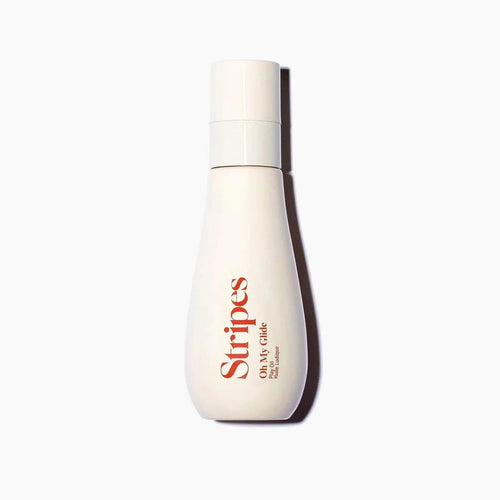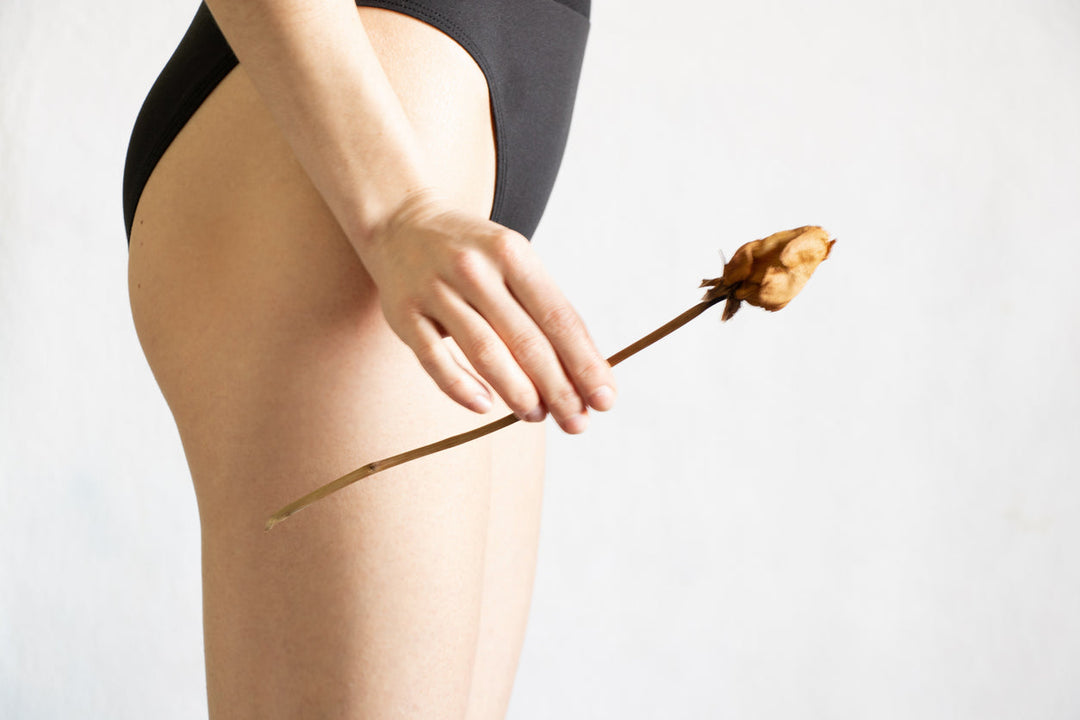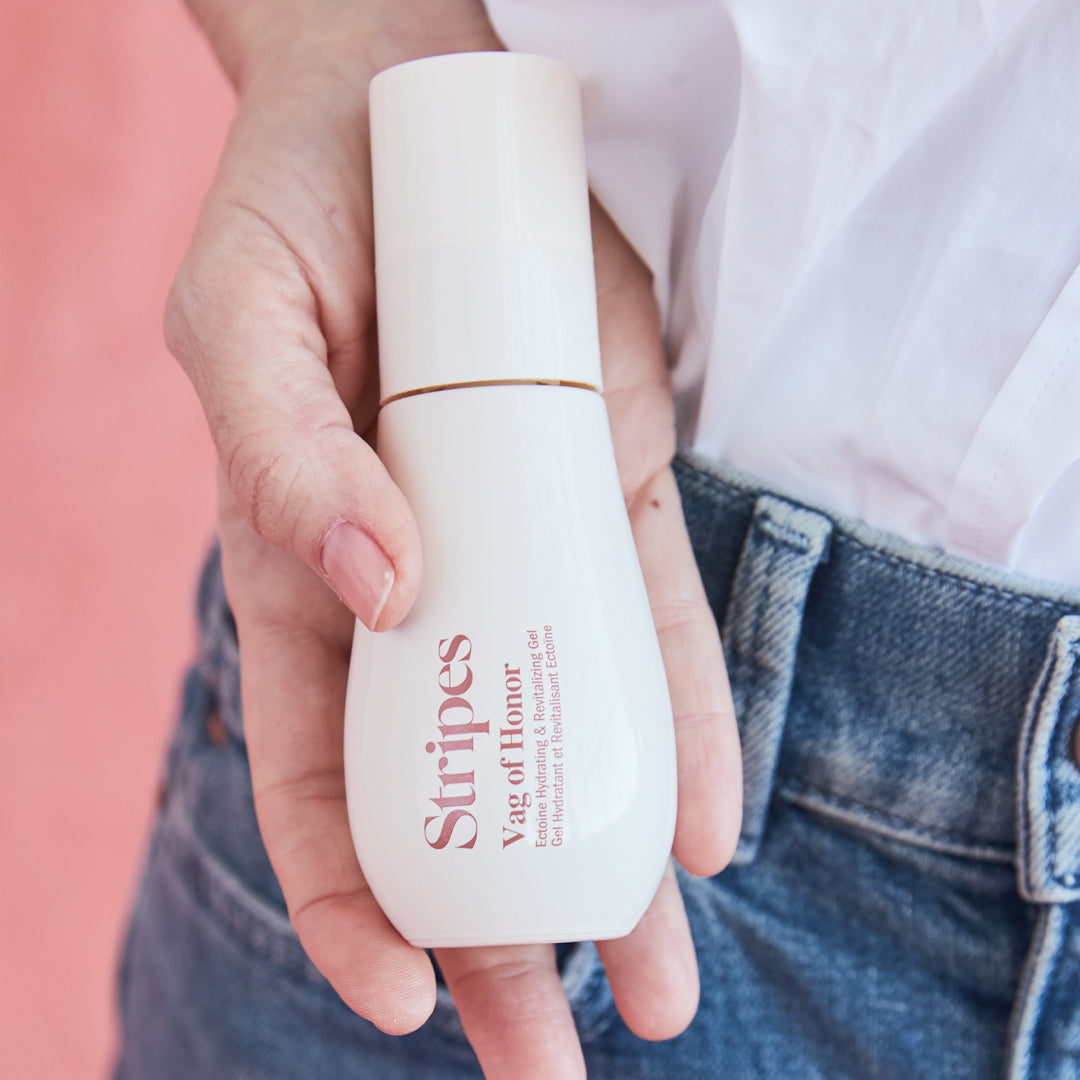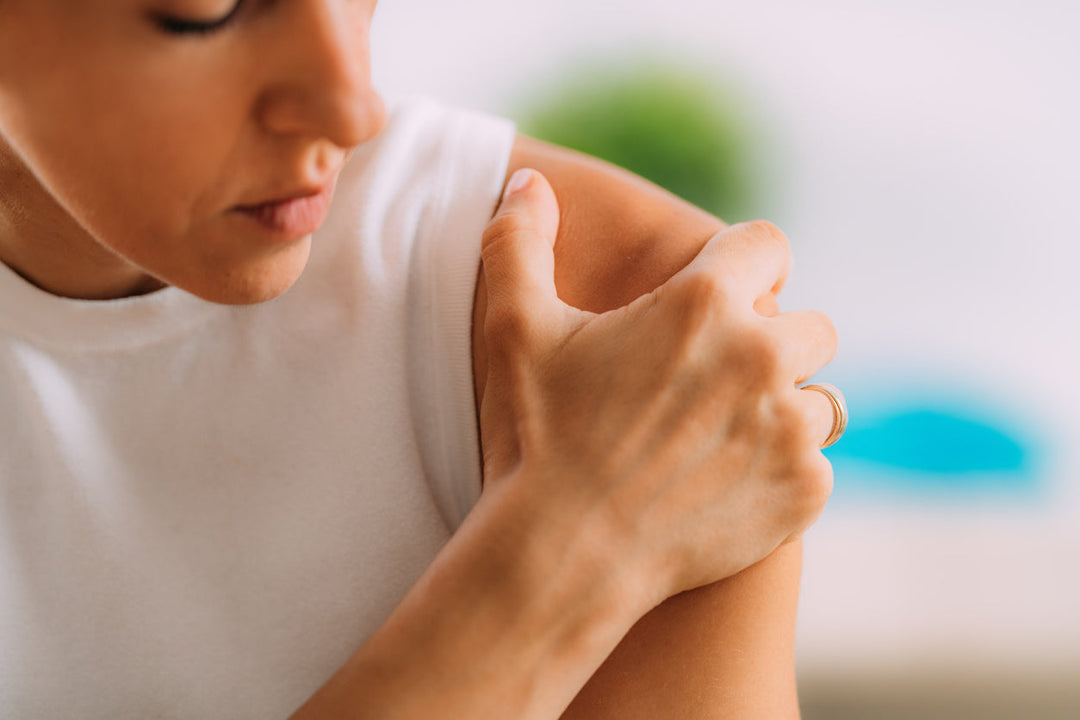What Causes Vaginal Dryness in Perimenopause and Menopause? And How to Feel Better
Let’s be honest: vaginal dryness isn’t exactly a hot topic over brunch. But it should be. And if you’ve ever wondered what causes vaginal dryness, you’re not alone.
If you’re in perimenopause or menopause and things feel different “down there” — less moisture, more friction, even a little irritation — you’re not imagining it. Vaginal dryness is one of the most common (and under-discussed) symptoms of hormonal change. But here’s the good news: relief is possible, and it starts with understanding what’s really going on with your body.
We sat down with Dr. Sara Reardon, a pelvic health physical therapist better known as The Vagina Whisperer on social media, to break it all down.
What causes vaginal dryness, and what is it exactly?
During perimenopause and after menopause, many women experience a noticeable change in how their vagina and vulva feel — especially during sex or when using tampons.
“Decreased estrogen levels cause the vaginal and vulvar tissues to become thinner, less elastic, and less lubricated,” explains Reardon. “That leads to dryness, irritation, and sometimes painful sex or spotting after intercourse.”
Estrogen is the hormone that keeps your vaginal tissues supple, your pelvic floor strong, and your natural lubrication flowing. When your levels start to dip (which can happen gradually in perimenopause), so does your body’s ability to self-lubricate.

Vaginal dryness vs. vulva dryness — is there a difference?
Yes, and it matters.
“The vulva is the external area: your labia, clitoris, and the opening of your vagina,” explains Reardon. “The vagina is the internal muscular canal. Both are made of mucosal tissue that helps protect against infection and friction.”
So when we talk about “vaginal dryness,” it’s often really a combination of internal vaginal dryness and external vulvar dryness — both of which can affect comfort, intimacy, and everyday activities. And that’s why using the right products in the right places is key.
“Products should be specific to either vulvar or vaginal use to help maintain a healthy pH and microbiome,” says Reardon.
What causes vaginal dryness in menopause?
While the primary culprit is declining estrogen, several other factors can make things worse:
Medical and hormonal causes:
-
Perimenopause and postmenopause (the big ones!)
-
Hormonal birth control
-
Breastfeeding
-
Certain skin conditions like lichen sclerosus
“These changes can cause painful sex, irritation, bleeding, and even an increase in urinary tract infections,” says Reardon.
Lifestyle triggers:
-
Dehydration
-
Stress
-
Lack of sleep
-
Pelvic floor tension
All of these can reduce blood flow and moisture in the vaginal tissues, making dryness worse.
How to treat vaginal dryness without hormones
Not everyone wants (or can use) hormone therapy, and that’s okay. There are plenty of hormone-free ways to support your vaginal health during perimenopause and menopause.
Here are Dr. Reardon's go-to solutions:
1. Moisturize daily (yes, down there)
Think of it like face cream for your vulva. A hormone-free vaginal moisturizer like Stripes Vag of Honor helps hydrate sensitive tissues and ease dryness throughout the day — not just during intimacy.
2. Use lube every time you have sex
Even if you’ve never used it before, lube is essential during menopause. “A good vaginal lubricant like Stripes Oh My Glide can make sex more comfortable and enjoyable,” says Reardon.
3. Relax your pelvic floor
Dryness and discomfort can lead to pelvic floor tension, which can make everything feel tighter and more painful.
“Gentle stretches like happy baby pose and child’s pose help relax the muscles and improve blood flow to the area,” says Reardon. “This can actually increase natural lubrication.”
4. Address the basics: sleep, water, stress
Hormonal shifts already throw your body off balance. Don’t let poor sleep or dehydration make it worse. Try to drink more water, aim for 7 to 8 hours of sleep, and carve out time for calming activities like yoga or meditation.
5. Don’t forget to eat a healthy, balanced diet
“Your diet can play an important role in maintaining a healthy vaginal pH and microbiome,” explains Dr. Somi Javaid, board-certified OB/GYN, surgeon, and expert in women’s sexual health and menopause. “While certain foods, like pineapple, are often hyped for their effects, the real focus should be on overall nutrition and gut health. A healthy diet not only supports the vaginal microbiome but also helps maintain the natural acidity that protects against infections and keeps the vagina functioning optimally.”
You’re not broken, you’re in transition
If vaginal dryness is interfering with your comfort, your sex life, or your sense of self, you’re not alone — and you’re not “just aging.”
“These changes are completely normal, but that doesn’t mean you have to put up with discomfort,” says Reardon. “There are simple, effective ways to support your body through this transition.”










